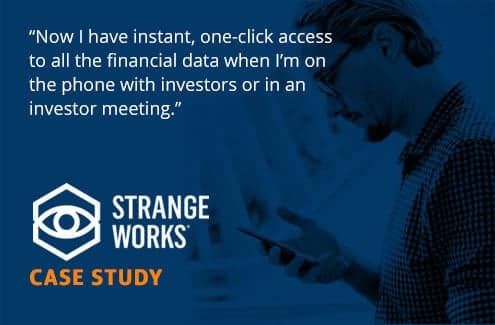Business process outsourcing (BPO) has seen a considerable increase in market demand during the last few years. According to research, the BPO industry is expected to reach USD 405.6 billion by 2027. This should come as no surprise since BPO has found a place in almost every industry, and private equity portfolio companies are no exception.
Finance and accounting are easier to manage with Finance-as-a-Service, and this is one of many reasons why PE firms decide to introduce it to their portfolio. To fully understand how outsourced accounting works with business process outsourcing, we must take a closer look at BPO and try to explain how such services could benefit your PE firm.
What does BPO accounting mean?
Private equity has many obligations and falls under a lot of financial regulations. This creates immense pressure on the finance and accounting staff in your portfolio. They must have a firm grip on all cash flows within the company, but they also need to stay informed about regulations and market conditions. With the advancement of information technology, staying up to date with relevant information shouldn’t be an issue. Still, if your portfolio company doesn’t have enough human resources allocated to the financial department, things can slowly become outdated.
The need for relevancy in the market has never been higher, and with poor financial reporting from the accounting staff, a private equity firm could see lower ROI over time. Miscommunication, wrong information, or the lack of staff could lead to bad decision making by the managing director.
With outsourcing (BPO), the whole process is simplified and tightly regulated. Every company that offers Finance-as-a-Service is always looking for top-notch global talent in the area of finance. This is possible because they don’t have to be physically located in an office. Remote work has become a standard for these companies. This global business may have different business models, but it will strive to bring the best customer experiences at the lowest costs.
How does BPO accounting handle your portfolio’s finances?
Whether you choose to work with an offshore BPO company or a local one, the quality of the services may vary, but the business process is almost always the same. Rather than hiring and managing an in-house financial staff, your BPO partners will handle your accounting. Usually, such companies offer financial accounting services, bookkeeping, payroll processing, tax planning and returns, payable and receivables accounts management, bank reconciliation, and financial reporting. Having such services at your disposal on-demand can bring considerable benefits to your PE portfolio but also remove the need to manage and hire financial management teams. Consider it as a form of process automation.
What are the benefits of BPO accounting?
The first noticeable benefit is minimizing the need for additional human resources within your portfolio company. Scaling is no issue with outsourced solutions because resource allocation is tailored to fit the current needs of the company. By having your finances professionally managed wealth management becomes a lot easier. Outsourced finance simplifies asset management by providing on-demand and around the clock support. This means more time and room for scaling and growth for both your PE firm and your portfolio company.
Regulators require timely reports and transparency. With an in-house team, you have limited possibilities regarding staff hires. Time and automated financial management aren’t the only pros that come with BPO. Cost reduction is a significant factor as well due to increased productivity and workload management.
Accuracy and efficiency
By looking at the legal side of things, it is hard not to notice how having access to accurate financial statements, and legal information can help with tax compliance and other legal issues you may encounter. If you made the right choice when picking your outsourcing partner, you could always count on professional help from the company. This is very important when you need to deal with regulations since it removes the need for hiring additional support. BPO provides you with skilled and well-informed talent that will stay on top of things at all times.
BPO gives you access to valuable tools and information
Companies that offer Finance-as-a-Service need to provide the very best to their potential customers to stay competitive. The ever-growing market requires constant improvements and innovation, and this can only result in better customer services. Advancements in information technology have enabled them to have access to sophisticated software solutions like cloud-based finance that can completely reorganize and reshape your business structure. On top of that, these companies update their knowledge base regularly, which enables them to combine the technology they are using with the information they have. This can have a massive impact on portfolio companies since it improves productivity and enables managers to focus on their core competencies.
Conclusion
It is more than evident that the current “build it in-house” solution isn’t very usable for finance and accounting. An in-house team can’t compete with outsourcing for various reasons. Fixed income could be mentioned as one of them because outsourced solutions will always stay competitive in that sense. By having access to global talent, BPO has combined quality with low-cost, allowing them to hire remote experts who can bring more value for less cost. ROI is the primary concern of every private equity firm, so cutting costs within their portfolio is an entirely reasonable need. By unloading the responsibility of handling their finance and accounting to a BPO partner, portfolio companies can focus on productivity and profit while leaving the complicated and repetitive tasks of accounting to BPO altogether.
Knowing all of this removes the mystery behind BPO growth. The demand for such services in the finance industry continues to rise because it is hard to compete with reliable, relevant, and timely data delivery. By knowing all of this, an 8% yearly growth of the BPO market should be self-explanatory. The pros simply outweigh the cons.









